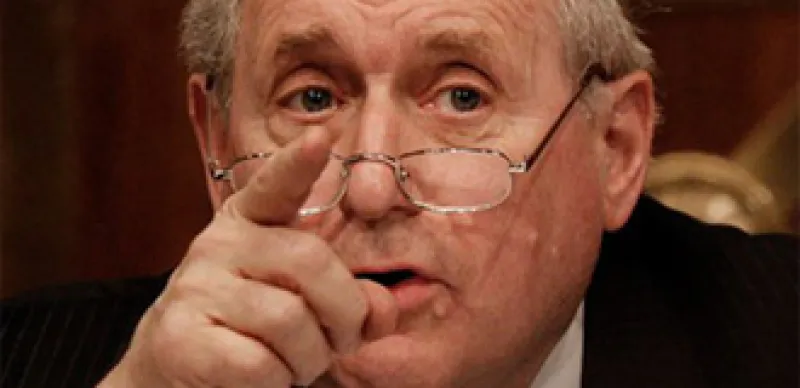
CNBC’s Jim Cramer, seemingly about to implode, was highly critical of the panel’s chairman, Sen. Carl Levin (D-Mich). But even Cramer conceded some industry conflicts were apparent throughout the day. One of Sen. Levin’s last lines, “You shouldn’t sell crap,” summed up the crisis neatly enough.
If the goal was for the Senate to score political points, maybe get financial industry reform laws passed, then the day was not wasted either. At times Sen. John McCain, gritting his teeth and steeling his eyes like Dirty Harry hovering over a bleeding hoodlum, looked almost ready to join the Democrats in their efforts to better patrol the Street beat — and perhaps if Dodd calls the Arizona Republican up and offers to make it the Dodd-McCain Financial Reform Bill of 2010, the breaking news from the capitol would not contain the phrase “this was one shitty deal.” Instead there would be a breakthrough on the legislative push that only needs one Republican.
If the goal was to embarrass former and current Goldman executives, the day was also a success. Former Goldman trader Dan Sparks took most of the heat and didn’t necessarily do the best job, while looking far more freckly than he normally would have, thanks to the high definition screens. Josh Birnbaum, by comparison, did a more effective job, but still probably came off to most ordinary, everyday, non-industry people as slightly arrogant. Fabrice Tourre (pronounced “tour”) did fine, even somehow lived down the trove of emails that seem to have had as much to do with his sense of self importance than anything else. His accent was noticeable but not so funny sounding that he warrants an SNL skit, though likely there will be one.
If the goal was for Sen. Levin to prove that Goldman was net short housing in 2007, then yes again — despite Blankfein’s futile attempts to downplay, split hairs, net things out, or obfuscate. At the end of the hearing, with papers shuffling, lawyers whispering, hearts pounding and a biblical tediousness raining down around the Dirksen building, it became obvious: Goldman was short in 2007, peak of the housing bubble, and profited — substantially.
So? So, the problem is that instead of trying to posture Goldman as neutral market maker (and not market mucker-upper, as Sen. Claire McCaskill said), or arguing that the longs and shorts were always to be considered alongside each other over rolling periods, Blankfein might have been better off with something along the lines of, oh, say, “You’re damn right I ordered the code red!” Or at least smiled and told the Senator, with all due respect, that indeed Goldman is a for profit business but yeah, we screwed up. Fab, your fired. Email system, you too, pack your hard drive and hit the pavement.
Ultimately, not unlike like Miami condo flippers or Don Knotts, who late in his career agreed to take on the role of an aging swinger, Mr. Furley, on a post-shark-jump Three’s Company, Goldman Sachs desperately, lovingly, eagerly wanted to make money.
It doesn’t matter how many days of the year in 2007 Goldman was net short, or what one trader’s local business was netted out at end of the year, or that the P&L reads that they only made $500 million in 2007 from mortgages, When all is said and done, all of the netting out misses the point: Goldman was the target of a Senate probe — by nature, a political exercise. Blankfein only prolonged and widened the disconnect between people who are in the business and people who are not. But there’s sunlight pouring in and it will change the business.
Oh, and also, the next time a municipality or sovereign nation decides which firm gets a potentially lucrative underwriting gig, it’s possible that now more deals will go to firms other than Goldman Sachs.






